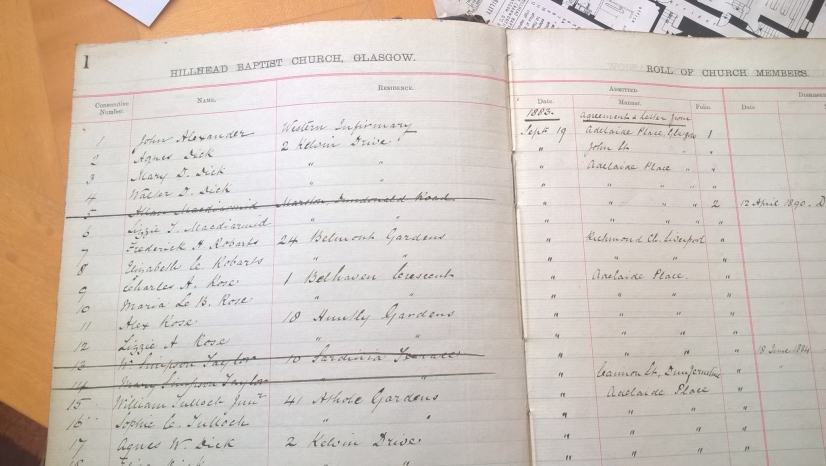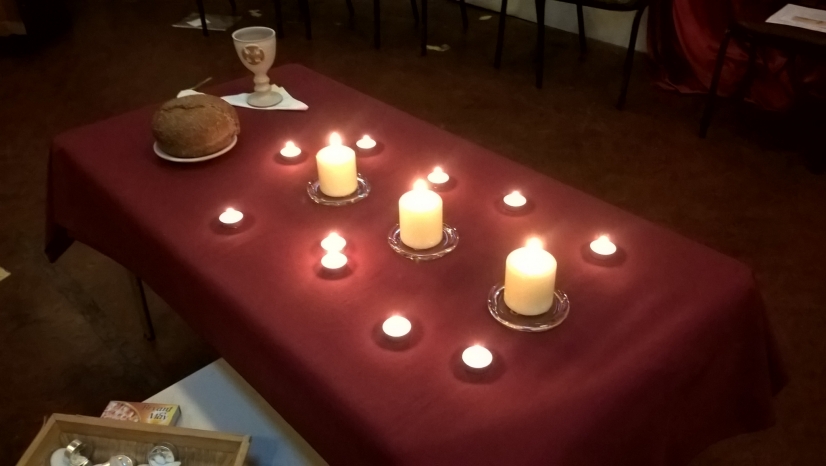The photo is the "up to 1960" Roll Book of our church, one of many precious and wonderful items that lie unseen in a dusty cupboard off of my office. On Wednesday evening, ahead of a Deacons' meeting I was rooting around for a specific file and paused to enjoy a little time with this, and other, treasures.
This, the first page of the roll book lists the names of the founders of our church, the people who covenanted together to form a congregation on what was, then, the outskirts of the city. The faded, but still indelible, black ink; the strike through of those who had died (later entries would include striking through of those who left or moved away), the identification of churches from which people came, and to which they moved... utterly fascinating and endlessly precious.
Leafing through, I found entries for some of our "more mature" folk... I don't have access to records from 1960 onwards, and suspect that the numbering system has long fallen into disuse, but it's good to set myself, and others, in the context of something so much greater and more enduring than our own, finite experience.
There are many other such items in the cupboard - so I'll have to restrain myself from disappearing in there and not emerging for some considerable time!!


